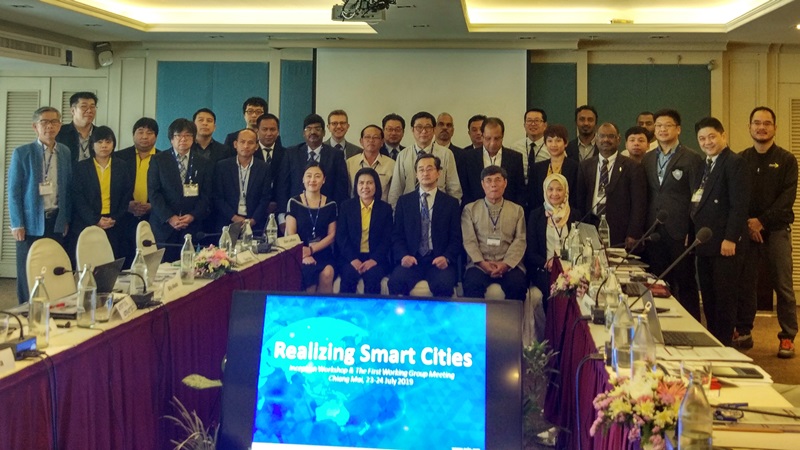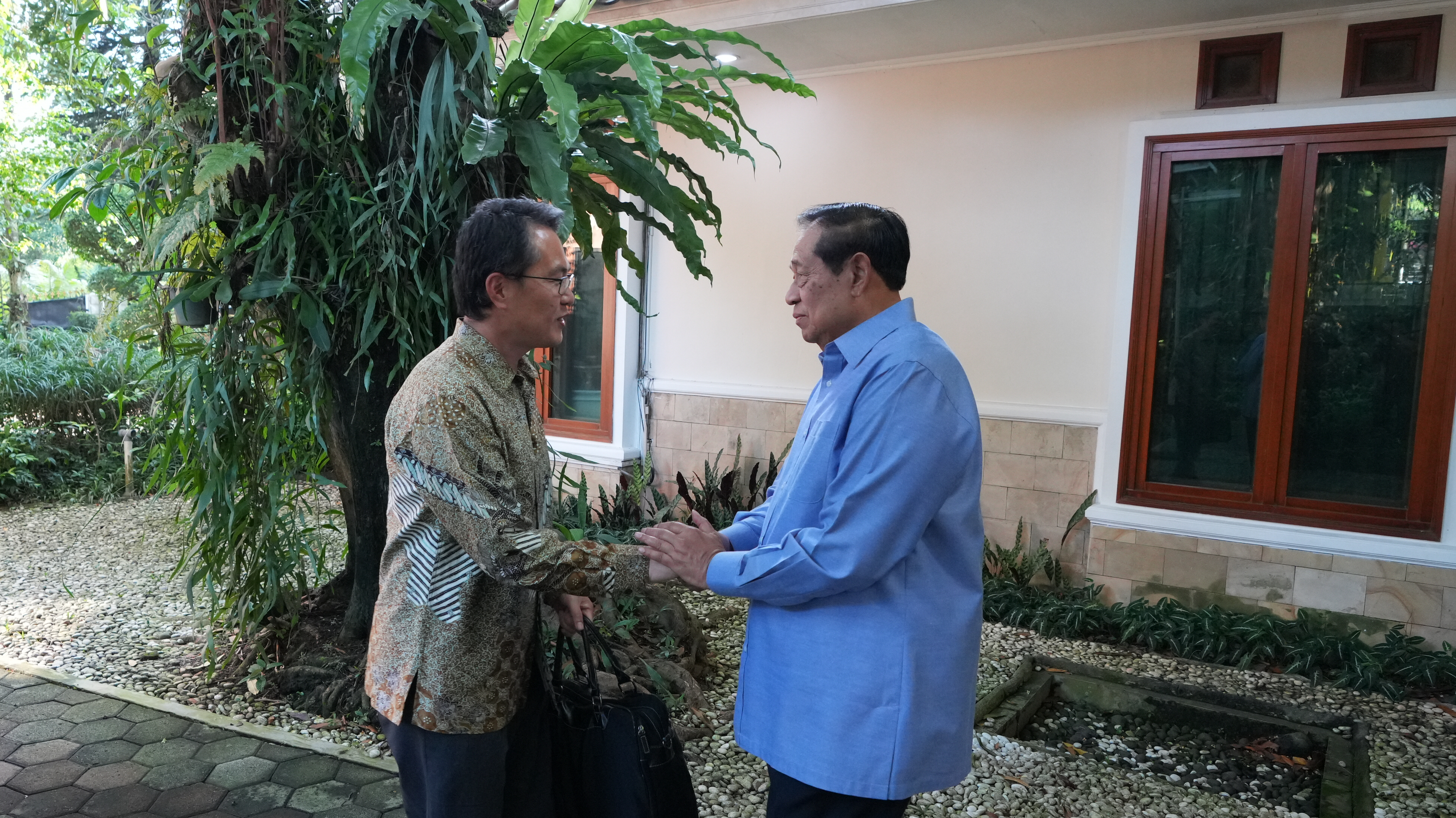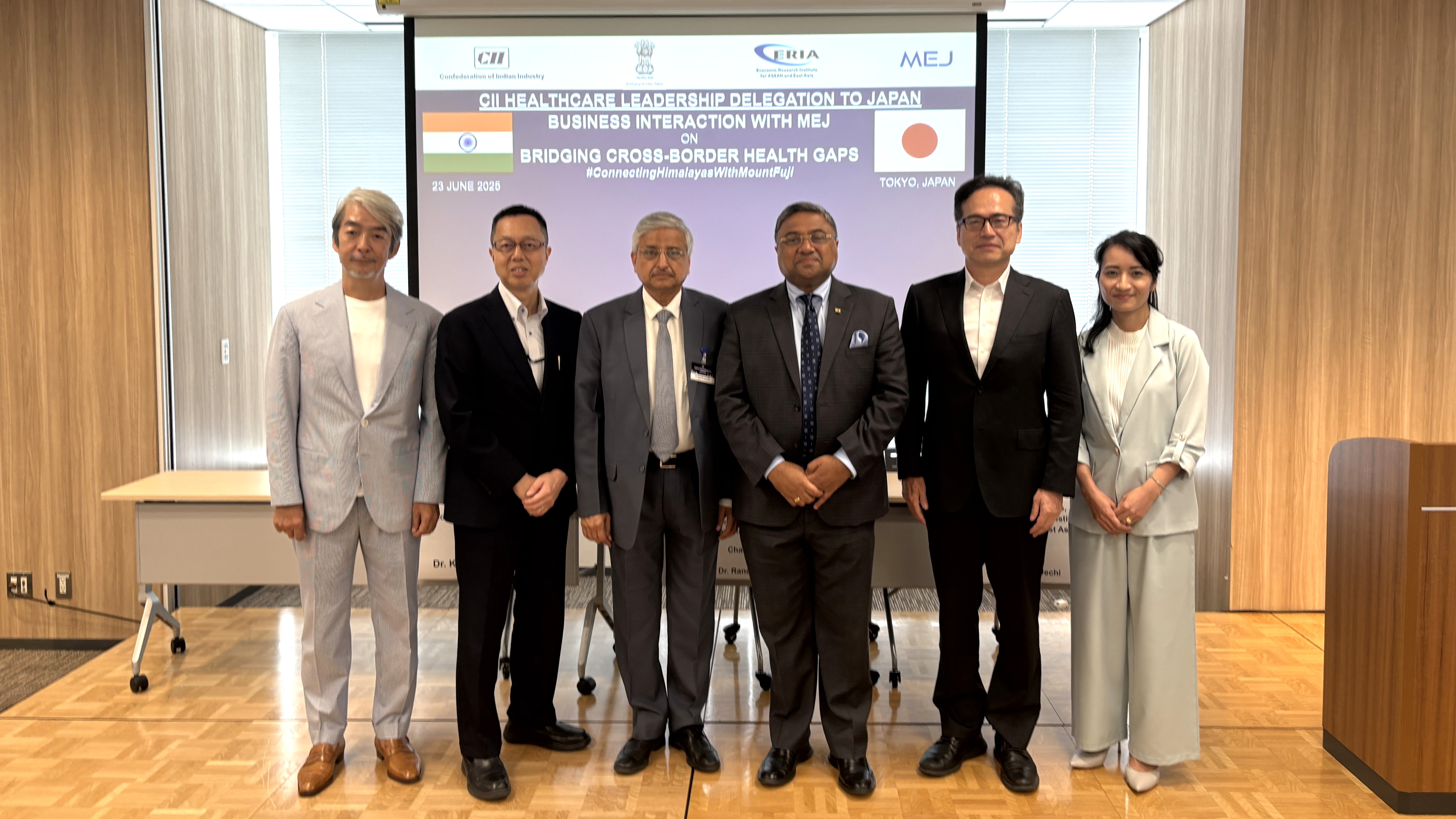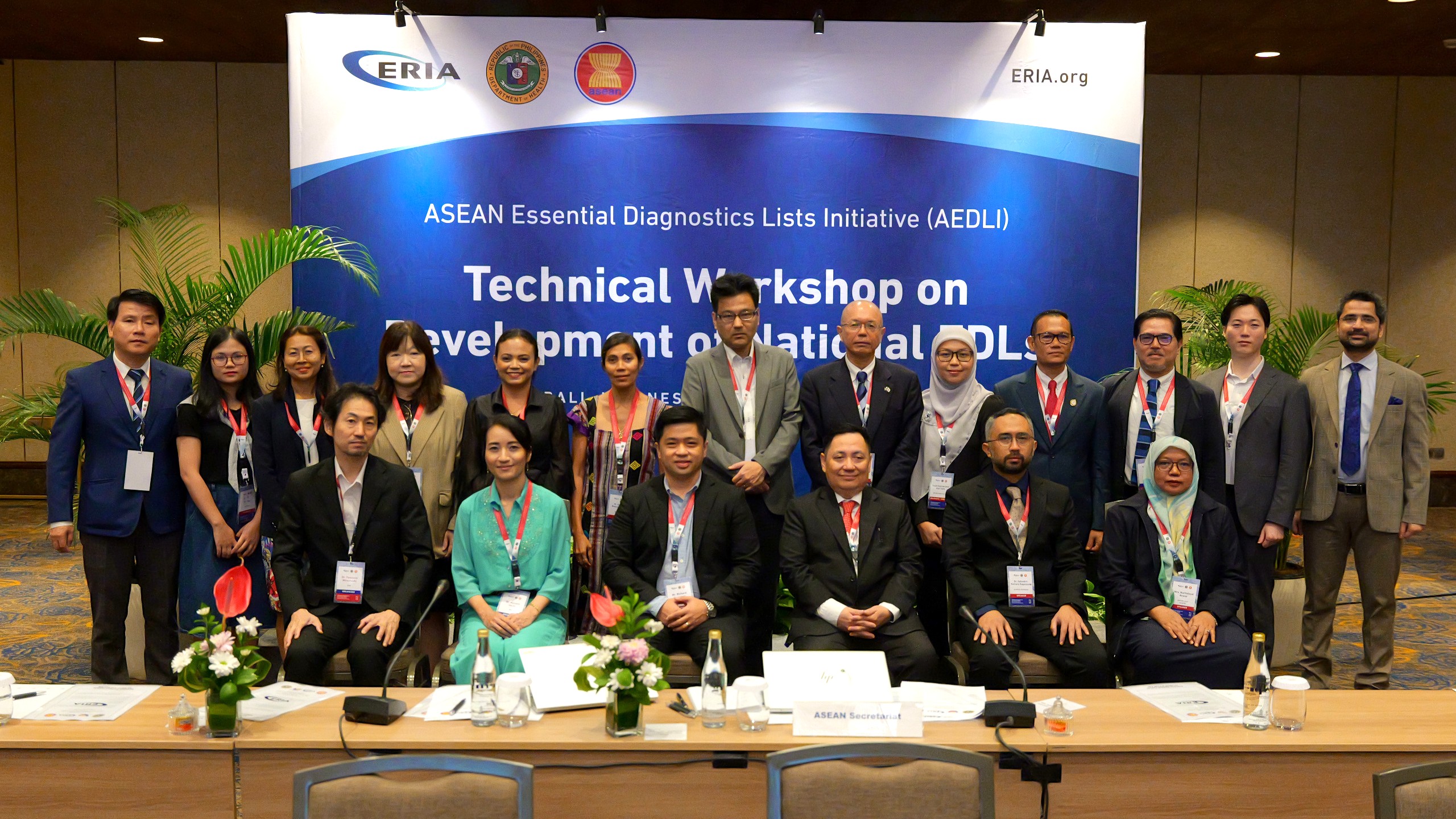Enhancing the Readiness of ASEAN Smart Cities
Date:
1 August 2019Category:
-Topics:
Capacity Building ProgrammeShare Article:
Print Article:
Chiang Mai, 24 July 2019 - ERIA, in collaboration with Asian Institute of Technology (AIT), Srinidhorn International Institute of Technology (SIIT), and Chiang Mai Municipality, organised a two-day workshop on ‘Realising Smart Cities’ on 23 and 24 July in Chiang Mai, Thailand. The workshop examined how cities can develop smart city programmes including the costs versus benefits.
Experts analysed critical needs including energy, economy, environment, and governance while exchanging experiences on key adjustments required in policy planning relating to the transition to smart cities. They also addressed sustainability implications identified necessary measurements and data protocols required to enhance the readiness of ASEAN smart cities.
About 30 experts representing academia, city officials and private sector participated.
Highlights
- Urbanisation fuelling economic growth, but its pace leaving many cities struggling to meet multi-dimensional economic, environmental, and social challenges and providing services to meet the needs of surging services by both the young and ageing population. While the challenges have been growing in scope, new technologies are available to tackle some of these issues, particularly in energy and environment.
- Smart cities paving the way for new methods of city governance by harnessing the potentials of the Internet of Things (IoT) through the utilisation of information and communication technologies throughout the city. By deploying responsive technologies across urban systems such as energy, water, public transport, street lighting, parking, and waste management, the smart city initiative aims to increase the quality of life and service delivery.
- Data feeds collected from all over the city need to be brought together into central computing platforms, processed, and analysed. Outputs can be distributed to the users and decision makers.
- Without a strategic vision for economic integration, infusion of IoT into various versions of smart city may yield differentiated outcomes and delayed implementation. The Comprehensive Asia Development Plan (CADP 3.0) offers a wholistic thinking for more successful urbanisation and economy for the future cities.
- The challenges and risks arising from smart city projects also need elaboration through further research. Moreover, providing methodologies to cope with important IoT-centric smart city challenges such as the privacy rights of data users/residents, is still an area where further research is needed.
Participants
Government Representatives
Chiang Mai
- Tussanai Buranupakorn, Mayor of Chiang Mai Municipality
- Trinnawat Suwanprik, Chiang Mai City Municipality (CMM)
- Monsak Socharoentum, Smart City Promotion Department
- Julanit Wangviwat, Chiang Mai Chamber of Commerce
- Parid Jinowan, Computer Technical Chiang Mai Governor’s Office
- Rongrong Duriyaphun, Head of Air Quality and Noise Management Sub-Division, CMM
- Patchara Mahayot, CMM
- Pajaree Jindakarn, Provincial Energy, CMM
- Thanaphokhin Sathitkhun, Provincial Energy, CMM
- Phattamaporn Pongwaret, Chiang Mai Provincial Statistical Office)
- Sarawoot Laohavisudh, Digital Economy Promotion Agency (DEPA) Northern Region
- Non Arkaraprasertan, DEPA
Lao PDR
- Chansouk Phandolack, Mayor, Luang Prabang City
- Yengher Vacha, City Office of Urban Service, Luang Prabang City
Indonesia
- Billy Alkadia, Jakarta Smart City
- Ramdhan Pomanto, Former Mayor of Makassar City, Indonesia
- Adriana Djamaluddin, Assistant of Former Mayor of Makassar City (Observer)
Malaysia, Johor Bahru
- Raja Zuraifah Raja Musa, Iskandar Regional Development Authority
Academia
- Sivanappan Kumar, Asian Institute of Technology, Thailand
- Bundit Limmechokchai, Sirindhorn International Institute of Technology (SIIT), Thammasat University, Thailand
- Kok-Chin Tay, Smart Cities Network, Singapore
- David Dharish, Singapore University of Social Sciences, Singapore
- Sarathy Thangavelu, Periyar University, India
- Adhityan Anbumozhi, Syracuse University, USA
- Huifang Tian, Chinese Academy of Social Sciences, China
- Sumavalee Chindapol, Faculty of Architecture of Chiang Mai University, Thailand)
- Tejas Shah, AIT, Thailand
- Achirayo Chaichaloemproecha, SIIT, Thammasat University, Thailand
- Pemika Misila, SIIT, Thammasat University, Thailand
- Parot Ratnaprida, Maejo University, Thailand
Private Sector
- Kiichi Tamida, NEC corporation, Japan
- Amornchai Wongworrakun, Oracle, Thailand
- Silpachart Pitisoavapak, Oracle, Thailand
- Kritsada Tavarasumida, Oracle, Thailand
- Wichien Cherdchutrakuntong, The Federation of Thai Industry, Chiang Mai Chapter
- Aung Win Myat, Technical Consultant
Economic Research Institute for ASEAN and East Asia (ERIA)
- Fukunari Kimura
- Venkatachalam Anbumozhi
- Jeremy Gross
- Yoshiki Nishida (ERIA/NEC)
- Masahito Ambashi
- Dian Lutfiana








